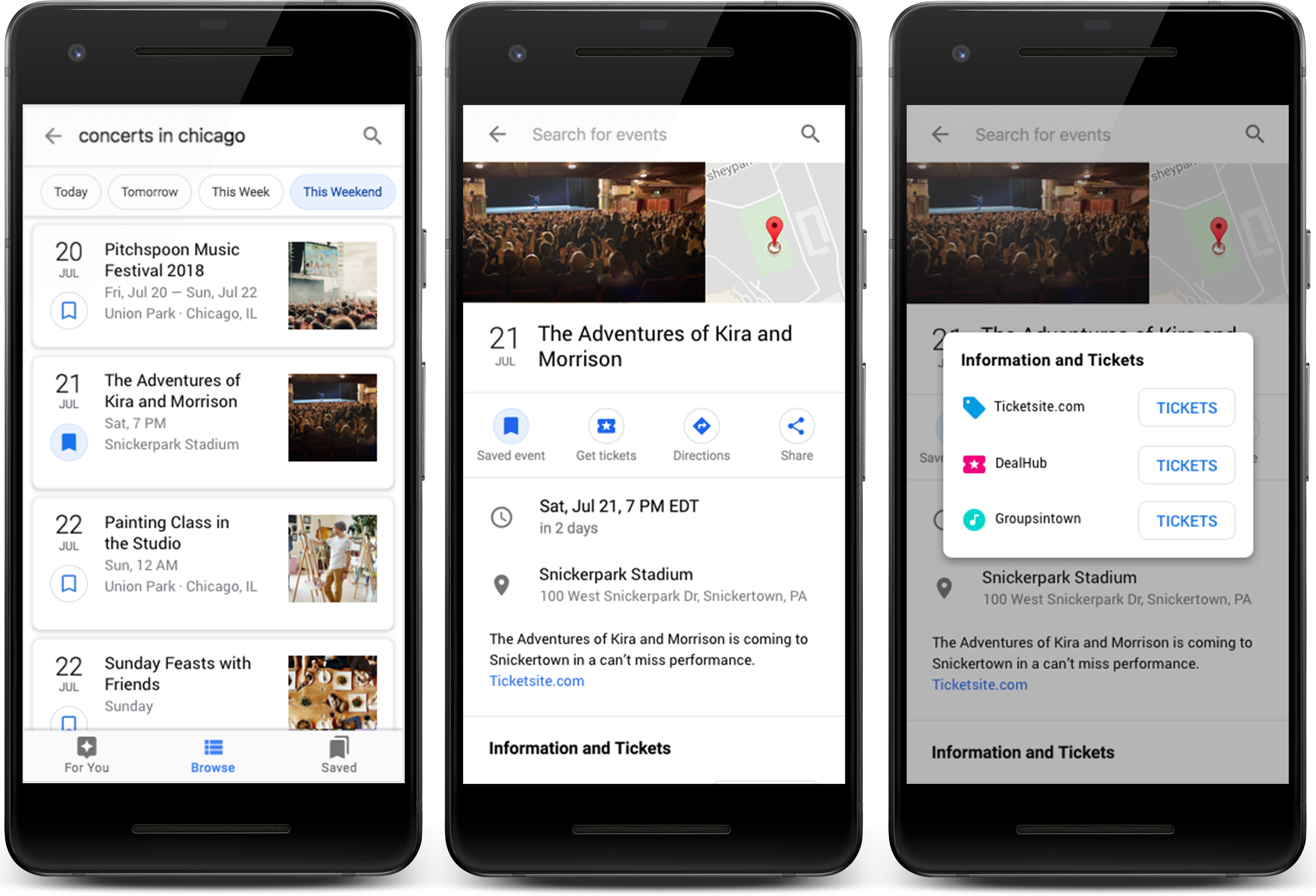
Introduction #
Event schema is a standardized format for organizing and marking up data related to events, such as concerts, conferences, or webinars, on web pages. The schema provides a set of properties and values that search engines like Google can use to understand the event and its context, including the event name, date and time, location, description, organizer, and ticket information. By using event schema, you can provide richer and more accurate information about your events to search engines, which can help improve their visibility and relevance in search results. Additionally, event schema can help search engines display event-related information in more engaging and informative ways, such as in the Google Knowledge Graph, featured snippets, or rich cards.
Usage #
To implement the Event schema on your website, there are two methods available. The first approach is to access the “Items” section and create one or more event schemas, manually input the relevant information, and assign each schema to the desired page.
However, if your website utilizes a custom post type for events, then the second method should be used. In this case, navigate to the “Post Types” section, select your Event post type from the dropdown menu, and then choose “Event” from the item dropdown. This will assign the event schema to every post of the Event custom post type. A blank event schema form will appear, allowing you to set the defaults for the automatic schema that will be generated for each Event post. Dynamic values can be utilized for this purpose. For example, right click on the title field and select Dynamic Value. You get a list of all the available dynamic values you can use. Select Post Title. This way, you assign each Event post’s title to the title field of the automatic schema. Any meta values that are used on Events posts, will also appear on the dynamic values list, so if for example there is an eventStartDate meta, you can assign it to the proper field of the form.
If you are using The Events Calendar plugin, and you enabled it’s integration to Actus Deep Schema, the Event schema will be already assigned to the Events post type of the plugin and the defaults for the auto-generated schema will be already populated with the proper dynamic values.

Properties #
type #
In this section you select an event type from the dropdown if any of the values apply to your event, or leave it blank.
info #
In this section you can define the main information about the event. You can set the title and a description of the event, it’s status, the starting and ending dates and times as well as any rating info if available.
Dates #
The timezone property on the start and end dates, must be the same as the timezone of the event’s place. The {Timezone} dynamic value reflects the timezone you defined on your wordpress settings.
If the event takes place over the course of multiple days, indicate both the start and end date. Don’t indicate the time if you don’t know the time.
If the event is happening all day, don’t specify a granular hour for the start date. For example, you can use 2019-08-15 as both the start and end date for a day-long event.
Title & Description #
Some recommendations from Google about title & description:
- Don’t use the type of event as the title of the event. For example, “Concert” is not a descriptive title for an event.
- Don’t include extraneous information like URLs, prices, or performers. Instead, use the appropriate properties for those values.
- Highlight a unique aspect of the event in the title. This helps users make faster decisions (for example, “feat. Q&A with the artist”).
- Don’t add short-term promotions (for example, “buy your tickets now”).
- Add a clear and concise description of the specific event.
- Focus on the event details and not your site’s features.
- Don’t repeat other facts like date and location; instead, add that information to the respective properties.
Status #
If you set the Event’s status to Cancelled, don’t remove or change other properties (for example, don’t remove start date or location info); instead, keep all values as the same as they were before the cancelation, and update the status to Cancelled. Why? Properties like start date and location info help identify the unique event and make sure people understand the new status of the event.
The Moved Online value indicates that the event has been moved from in-person attendance to online attendance.
Postponed: The event has been postponed to a later date, but the date isn’t known yet. Keep the original date in the start date of the event until you know when the event will take place. Once you know the new date information, change the status to Rescheduled and update the start and end dates with the new date information. (Don’t remove or change other properties).
When you set the status to Rescheduled, another property appears, named previous start date. You should fill it accordingly and then change the start and end dates to the new ones.
location & persons #
Depending on the type of the event you get different properties in this section. If the event is physical then you should set the name and the address of the place where the event is happening. If it is an online event then you should set the url of the event, where people can join. Finally, if it’s a mixed event you get fields for both properties.
Best practices:
- In the location name don’t include a city name unless it is a city-wide event.
- If the event happens without a well-defined location, use the city name or the most representative location.
- If the event happens at multiple locations at the same time, create different events for each location.
- If the URL to join the event isn’t available until after registering for the event, provide the registration URL where people can take the next steps to join your event.
On the Organizers and Performers properties you can define informations about the persons and organizations involved in the event. You can either select an existing Person or Business schema, or right click and assign some custom value or a Wikidata reference.
tickets #
In this section you define the prices of the tickets for the event including charges and fees. Begin from the lowest available price and don’t forget to update as prices change or tickets sell out.
The valid from property is only required on date-restricted offers. In the url field you should enter a URL of a page providing the ability to buy tickets.
images #
Here you can set any available images for the event.
reviews #
Reviews and ratings of the event.




